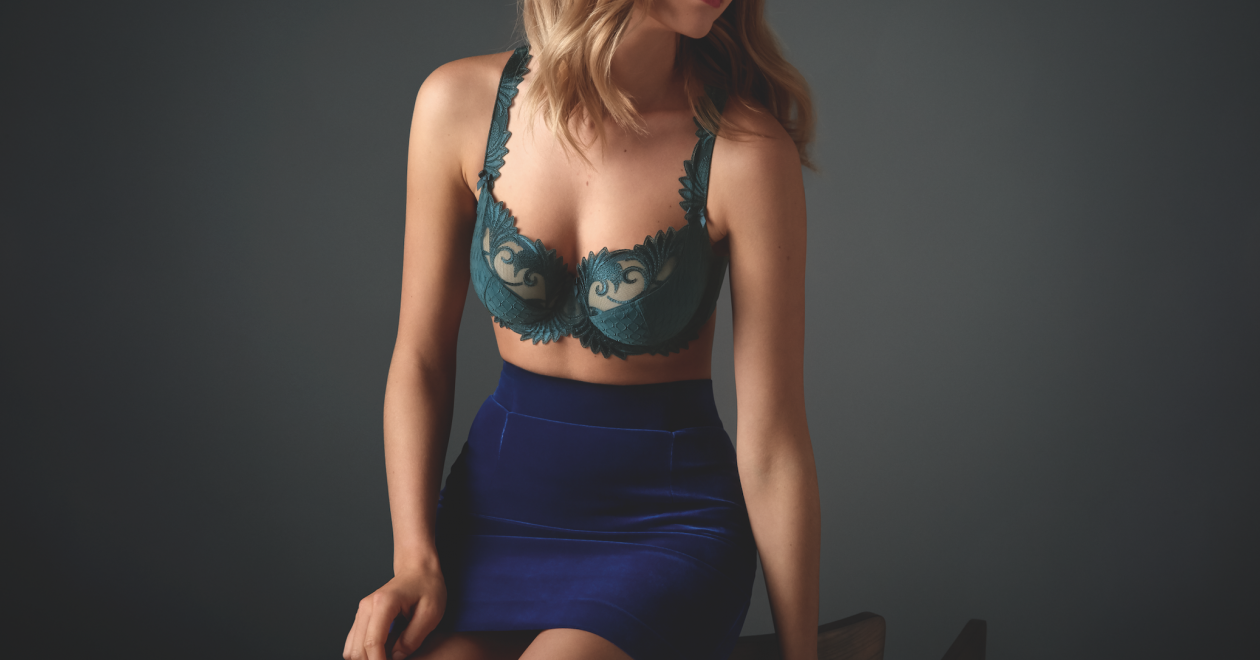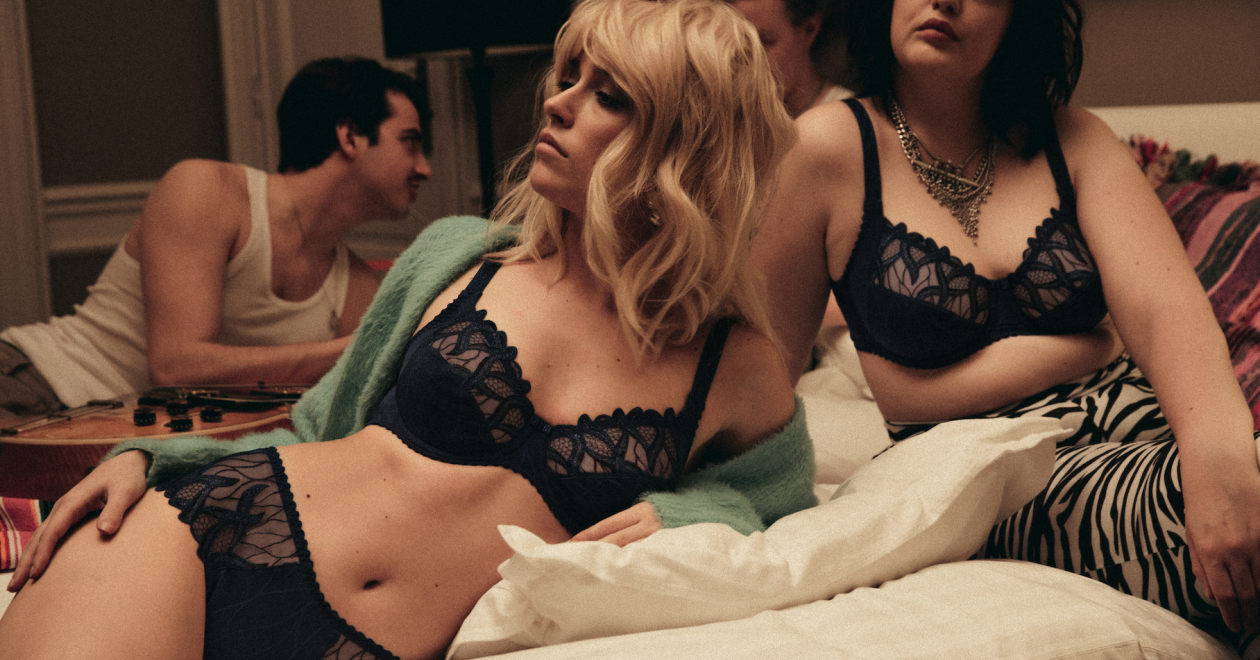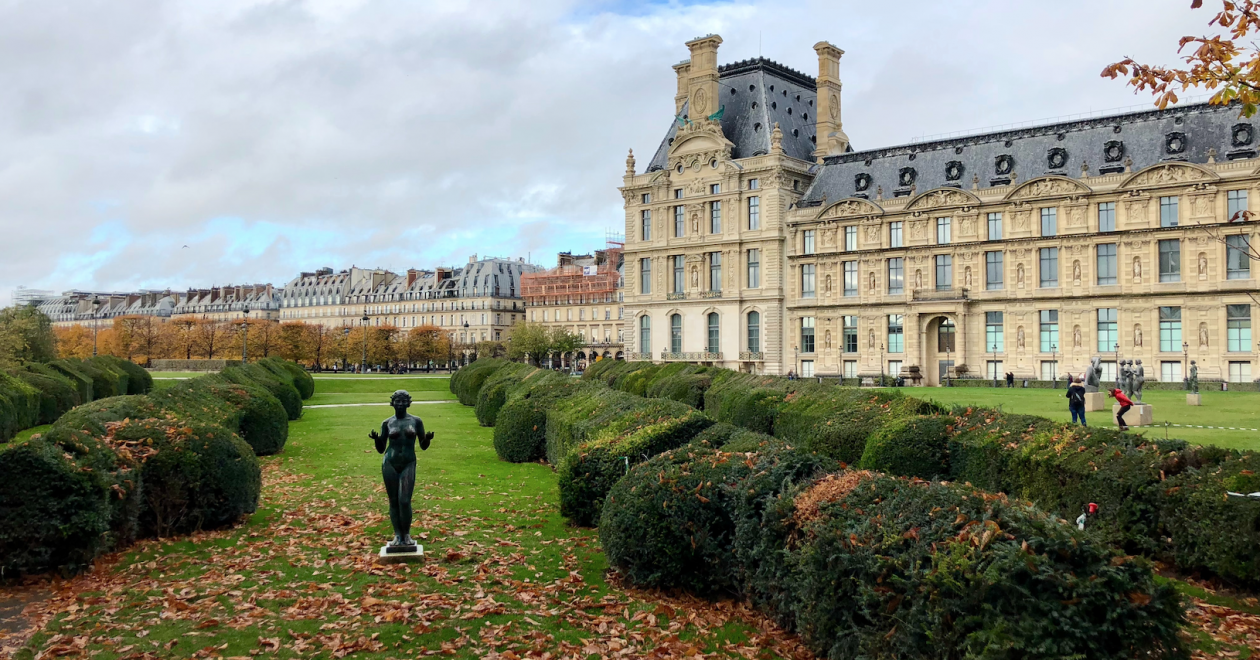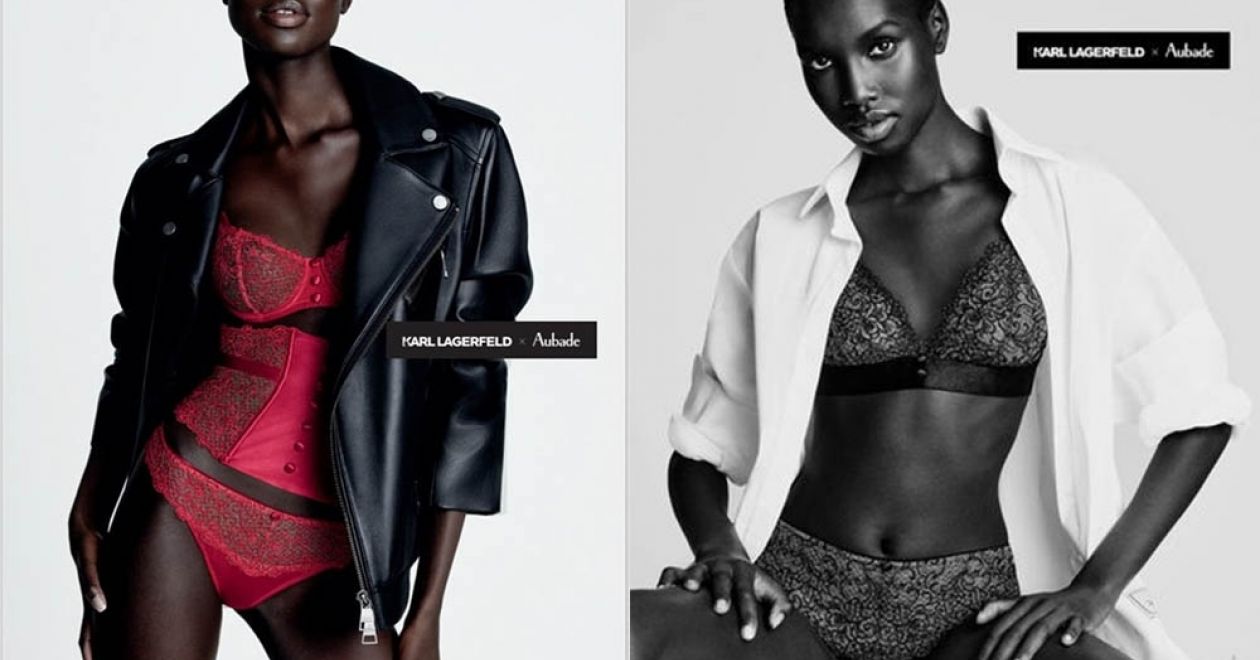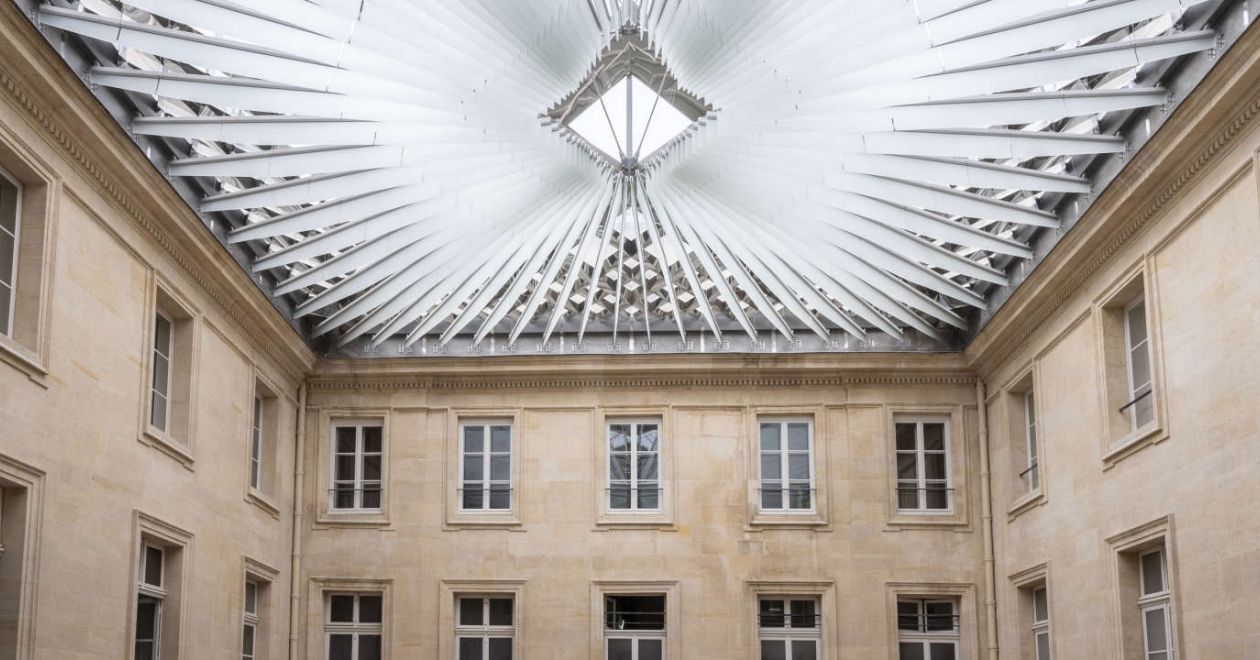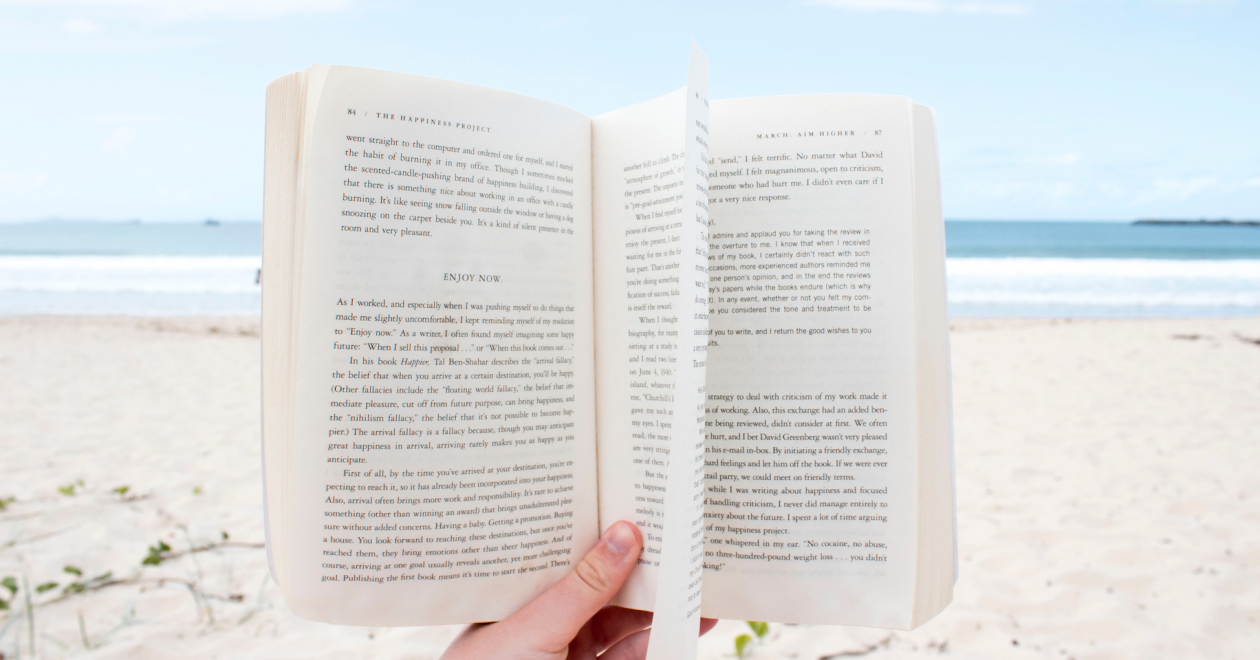What's the real secret about secrets?
Along with tans and great swimwear, many of us come out of summer with a few secrets: Private moments of pleasure, innocent dalliances or fleeting adventures at sea or on land that stay in our hearts forever. And so as we head into the last days of August, we’d like to raise our wine glass to those secrets, or what we prefer to call the virtues of discretion.
Let’s face it: The French tend to be discretional versus confessional. Of all the clichés we associate with their culture, this one prevails because it’s generally true: The French often hold their cards close at hand. They don’t wear their hearts on their shirtsleeves, and they won’t tell you or Oprah their life story in five minutes. And that’s because the French are private, not public. They have an enormous sense of personal boundaries and their secret gardens bloom not in the harsh glare of sunlight, but in the coolness of those shades of gray. If French women are so hot, we Americans might ask, why do they often seem so cold? This may explain why: They favor the implicit over the explicit, discretion over indiscretion, and the hidden is often much more enticing than the obvious.
Granted, the very word “discretion” sounds quaint in these digital days of full exposure, but it’s practically wired into the French brain at birth by virtue of the French language. (Where we have the practical, multipurpose “You,” they have the complicated linguistic terrain of the formal “Vous” that goes a long way in maintaining personal boundaries.) This French tendency to hold back the floodgates of personal confession defies the American tendency to lay all of one’s cards on the table in a relationship, or to seduce with a Big Bang rather than a Slow Reveal. It also implies not only a capacity to keep secrets but to cultivate them—and that suggests that it’s okay for unspoken experiences to coexist that aren’t necessarily shared with one’s partner. (In America, where sharing is considered a moral virtue if not a civic duty, that is also decidedly not okay.)
 In fact, the French love their secrets. They love the whole ambiguous, mysterious cargo of them. Secrets have an invisible alchemy to them; they’re personal, potent things with seductive heft and intangible draw. Even silence (the secret’s handmaiden) can be sexy. In fact, French author Camille Laurens goes so far to suggest that if you want to turn a man off, tell him all about yourself or ask him to tell you all about himself. Reveal all. As Laurens puts it somewhat severely: “When you have desire, words are excess baggage. Speaking, in fact, eliminates desire.”
In fact, the French love their secrets. They love the whole ambiguous, mysterious cargo of them. Secrets have an invisible alchemy to them; they’re personal, potent things with seductive heft and intangible draw. Even silence (the secret’s handmaiden) can be sexy. In fact, French author Camille Laurens goes so far to suggest that if you want to turn a man off, tell him all about yourself or ask him to tell you all about himself. Reveal all. As Laurens puts it somewhat severely: “When you have desire, words are excess baggage. Speaking, in fact, eliminates desire.”
All this is not to put a gag order on relationships; however, there’s no denying that discretion is usually de rigueur in France, and trumpeting your private life or otherwise exposing the horticulture blooming in your secret garden is not appreciated.
Which brings us to secret gardens: If the French turn their backs to the gaze of public life while they covet what goes on behind closed doors, they just as often turn their backs to the outer trappings of surface glam for the seductive virtues of an intriguing inner life. “I love the way she projects two facades,” François Truffaut once said of an actress—“a visible one and a subterranean one. She keeps her thoughts to her- self; she seems to suggest that her secret, inner life is at least as significant as the appearance she gives.”
Well, apparently it is. And that’s the thing about the French: They covet the intellectual and seductive virtues that come with cultivating an inner life. As French actress Isabelle Huppert once told The Boston Globe, the French woman’s frosty reputation “is a bit of a caricature of the French woman. But of course it’s true, compared to the way of behaving that is American. I can understand why it seems iced compared to the way people are here [in America], where so much is exteriorized and so much is obvious and so underlined.” Huppert, however, put her finger on something more essential when she suggested that French women also have “the capacity to access some- thing that is elegant yet very simple, without the artifice and seemingly without the effort.”
It is fair to assume, all things considered, that this “something”—this implication of knowing radiance that goes beyond the realm of the explicit—is in fact the glimmer of one’s inner life. If that inner life is a sexy thing, it needs to be nurtured, developed, pampered, soigné. It needs a mani and a pedi on a regular basis. As Voltaire once put it, we all need to cultivate our gardens – and he wasn’t talking about daisies.
Let’s face it: The French tend to be discretional versus confessional. Of all the clichés we associate with their culture, this one prevails because it’s generally true: The French often hold their cards close at hand. They don’t wear their hearts on their shirtsleeves, and they won’t tell you or Oprah their life story in five minutes. And that’s because the French are private, not public. They have an enormous sense of personal boundaries and their secret gardens bloom not in the harsh glare of sunlight, but in the coolness of those shades of gray. If French women are so hot, we Americans might ask, why do they often seem so cold? This may explain why: They favor the implicit over the explicit, discretion over indiscretion, and the hidden is often much more enticing than the obvious.
Granted, the very word “discretion” sounds quaint in these digital days of full exposure, but it’s practically wired into the French brain at birth by virtue of the French language. (Where we have the practical, multipurpose “You,” they have the complicated linguistic terrain of the formal “Vous” that goes a long way in maintaining personal boundaries.) This French tendency to hold back the floodgates of personal confession defies the American tendency to lay all of one’s cards on the table in a relationship, or to seduce with a Big Bang rather than a Slow Reveal. It also implies not only a capacity to keep secrets but to cultivate them—and that suggests that it’s okay for unspoken experiences to coexist that aren’t necessarily shared with one’s partner. (In America, where sharing is considered a moral virtue if not a civic duty, that is also decidedly not okay.)
 In fact, the French love their secrets. They love the whole ambiguous, mysterious cargo of them. Secrets have an invisible alchemy to them; they’re personal, potent things with seductive heft and intangible draw. Even silence (the secret’s handmaiden) can be sexy. In fact, French author Camille Laurens goes so far to suggest that if you want to turn a man off, tell him all about yourself or ask him to tell you all about himself. Reveal all. As Laurens puts it somewhat severely: “When you have desire, words are excess baggage. Speaking, in fact, eliminates desire.”
In fact, the French love their secrets. They love the whole ambiguous, mysterious cargo of them. Secrets have an invisible alchemy to them; they’re personal, potent things with seductive heft and intangible draw. Even silence (the secret’s handmaiden) can be sexy. In fact, French author Camille Laurens goes so far to suggest that if you want to turn a man off, tell him all about yourself or ask him to tell you all about himself. Reveal all. As Laurens puts it somewhat severely: “When you have desire, words are excess baggage. Speaking, in fact, eliminates desire.” All this is not to put a gag order on relationships; however, there’s no denying that discretion is usually de rigueur in France, and trumpeting your private life or otherwise exposing the horticulture blooming in your secret garden is not appreciated.
Which brings us to secret gardens: If the French turn their backs to the gaze of public life while they covet what goes on behind closed doors, they just as often turn their backs to the outer trappings of surface glam for the seductive virtues of an intriguing inner life. “I love the way she projects two facades,” François Truffaut once said of an actress—“a visible one and a subterranean one. She keeps her thoughts to her- self; she seems to suggest that her secret, inner life is at least as significant as the appearance she gives.”
Well, apparently it is. And that’s the thing about the French: They covet the intellectual and seductive virtues that come with cultivating an inner life. As French actress Isabelle Huppert once told The Boston Globe, the French woman’s frosty reputation “is a bit of a caricature of the French woman. But of course it’s true, compared to the way of behaving that is American. I can understand why it seems iced compared to the way people are here [in America], where so much is exteriorized and so much is obvious and so underlined.” Huppert, however, put her finger on something more essential when she suggested that French women also have “the capacity to access some- thing that is elegant yet very simple, without the artifice and seemingly without the effort.”
It is fair to assume, all things considered, that this “something”—this implication of knowing radiance that goes beyond the realm of the explicit—is in fact the glimmer of one’s inner life. If that inner life is a sexy thing, it needs to be nurtured, developed, pampered, soigné. It needs a mani and a pedi on a regular basis. As Voltaire once put it, we all need to cultivate our gardens – and he wasn’t talking about daisies.









